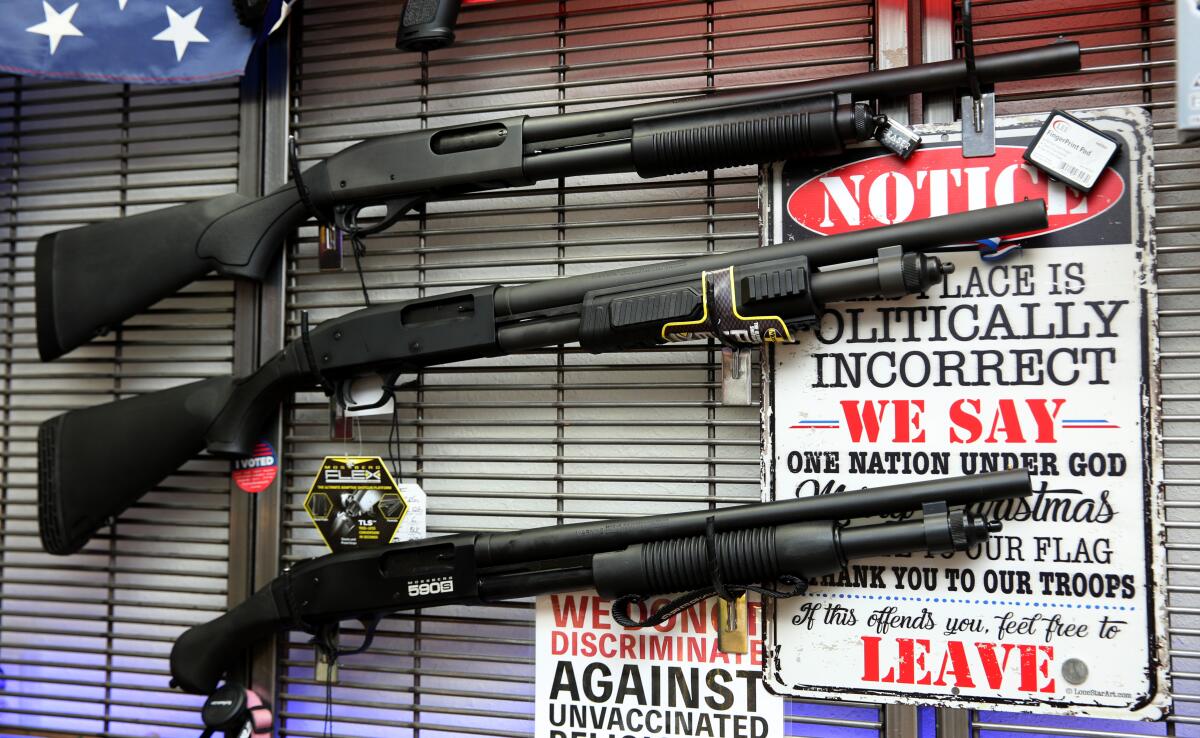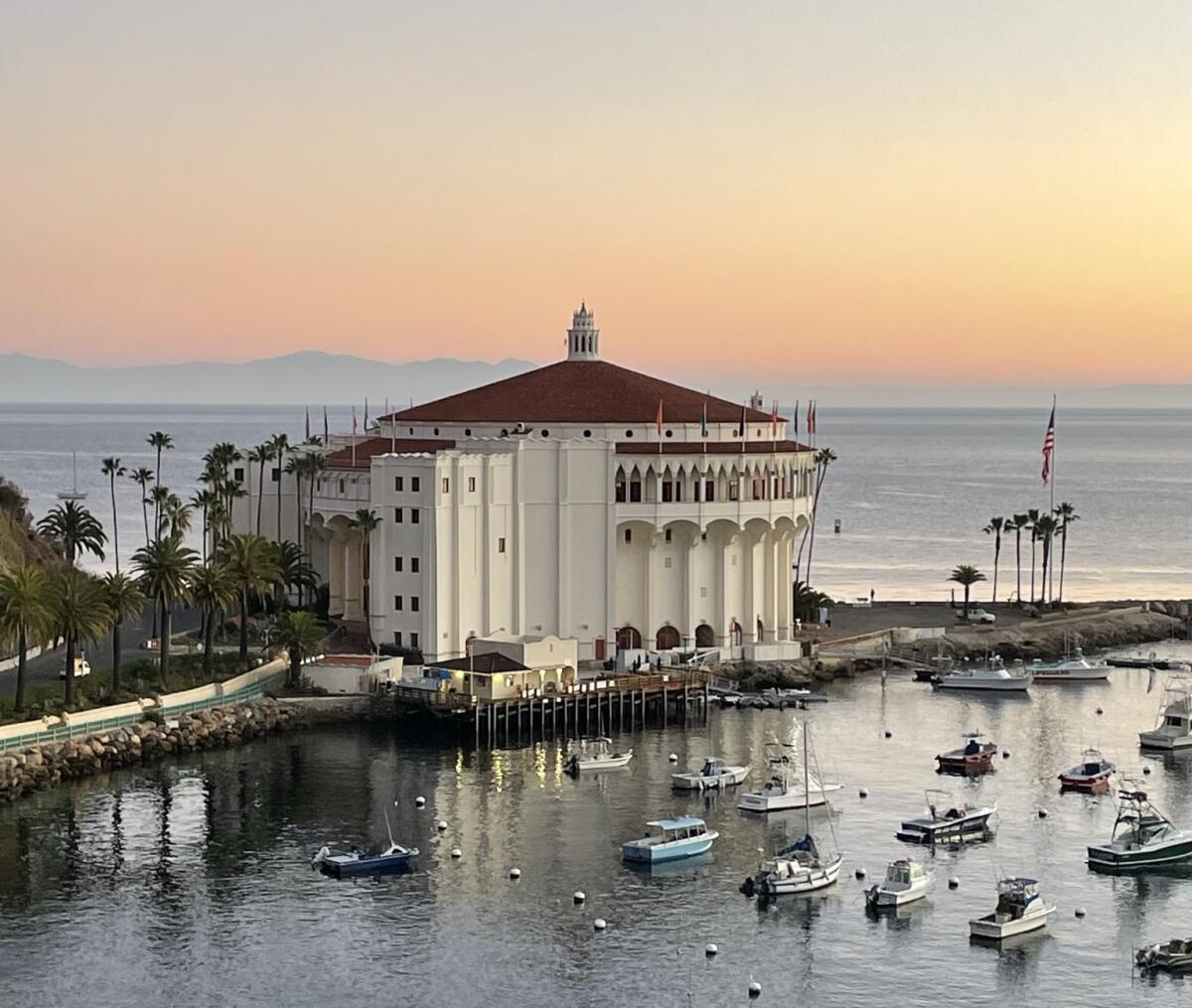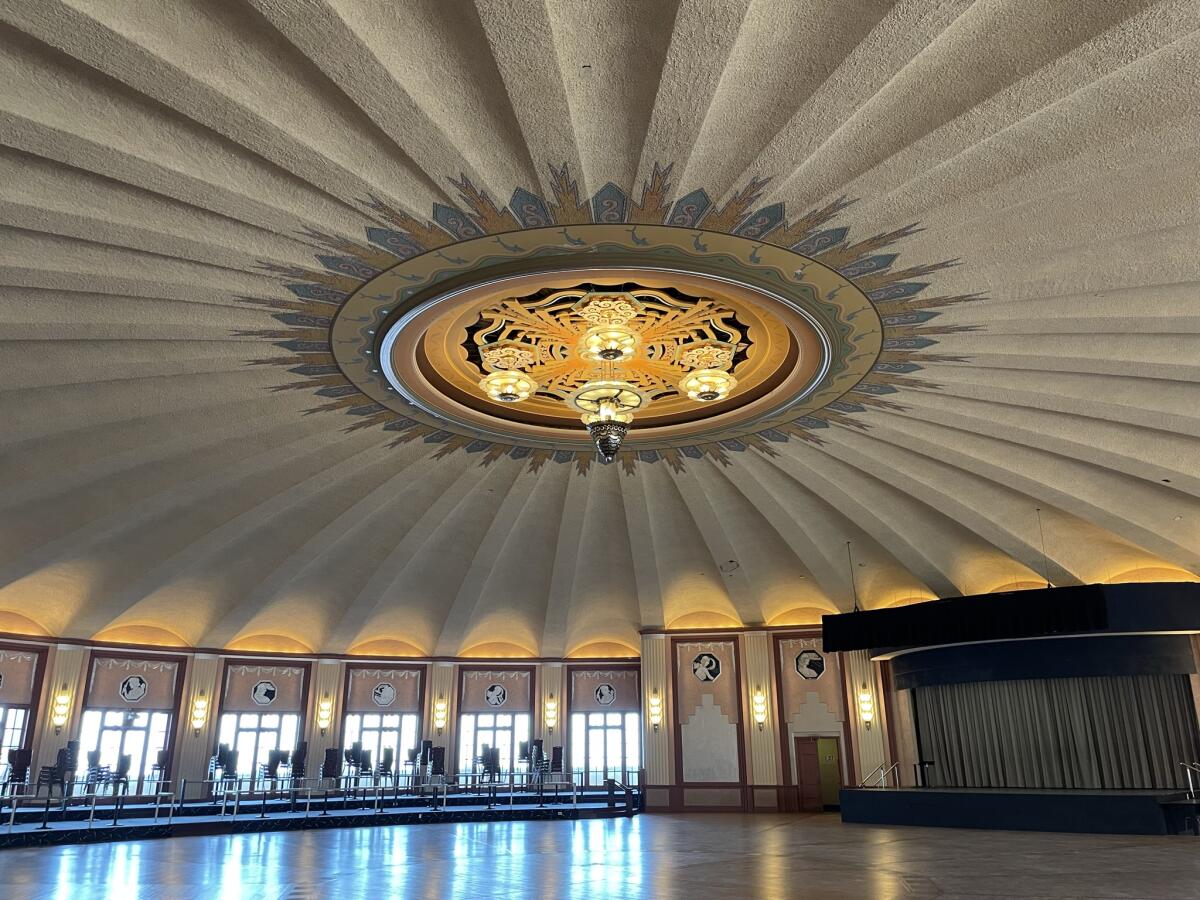For some Asian Americans, fear is driving a spike in gun sales

Good morning, and welcome to the Essential California newsletter. It’s Tuesday, Jan 31.
Last week, I wrote about the normalized cadence of coverage in the aftermath of tragedies like the ones in Monterey Park and Half Moon Bay. One aspect I didn’t mention was that often — but not always — gun sales spike in the weeks after a mass shooting.
In 2019, medical researchers in California reviewed 20 years’ worth of monthly gun sales data from the state to understand how mass shootings affect the firearms market.
Their analysis “suggests that the most deadly mass shootings have continued to occur in close proximity to the spike in gun sales,” researchers said.
Experts theorize that two types of gun buyers drive those spikes, both motivated to some degree by fear. One group believes that having a gun will prevent them from becoming a shooting victim. For others, the purchase comes out of a desire to buy firearms before potential new laws make that more difficult.
And for California’s Asian American population, two mass shootings within 48 hours add new layers of fear at a time the community has already experienced a rise in anti-Asian hate crimes.
My colleagues Jeong Park, Hailey Branson-Potts and Anh Do spoke with community members thinking about buying guns, along with advocates on both sides of the entrenched gun divide.
“For a small but growing number of Asian Americans, owning a gun seems like the only way to feel safe,” they wrote.
Research shows that Asian Americans have been buying more firearms in the last few years, along with other racial groups. A national survey of gun retailers conducted by an industry trade group showed 30% of respondents reported an uptick in Asian American customers.
Asian Americans remain the least common gun-owning demographic, according to the Pew Research Center and other surveys. White men are by far the most common.
The gun industry has also invested more marketing toward Asian Americans in recent years.
Speaking to my colleagues, pro-gun advocate Chris Cheng explained that, faced with the current “race-based social upheaval, a lot of Asian Americans are asking themselves, ‘Is the government able to protect me?’”
“And the answer for a lot of us is, ‘No,’” he said.
In an op-ed in USA Today, Rep. Judy Chu (D-Monterey Park) took aim at the gun lobby, saying they “capitalize on this racism and xenophobia by marketing gun sales to the communities of color who fear violent racist attacks.”
“This dangerous cycle means that, rather than finding ways to ensure illegal firearms are removed from our streets, we are seeing an increase in gun sales and gun ownership in our communities,” Chu wrote.
California, which has some of the strictest gun laws in the U.S., is among the states with the lowest rates of gun deaths, according to the federal Centers for Disease Control and Prevention.
And now, here’s what’s happening across California:
Note: Some of the sites we link to may limit the number of stories you can access without subscribing.
L.A. STORIES
Gas prices are on the rise again in L.A. County. On Monday the average price for a regular gallon reached $4.56. The increase is expected to continue, according to an official from AAA of Southern California, as the state readies for a switch to pricier, summer-blend fuel on April 1. Los Angeles Times
Check out "The Times" podcast for essential news and more
These days, waking up to current events can be, well, daunting. If you’re seeking a more balanced news diet, “The Times” podcast is for you. Gustavo Arellano, along with a diverse set of reporters from the award-winning L.A. Times newsroom, delivers the most interesting stories from the Los Angeles Times every Monday, Wednesday and Friday. Listen and subscribe wherever you get your podcasts.
POLITICS AND GOVERNMENT
A new state bill aims to restore media access to California prisoners. SB254 by Sen. Nancy Skinner (D-Berkeley) would allow reporters to tour state prisons and county jails and conduct interviews with inmates. Since the mid-1990s, prison officials have held the power to deny journalists access to visit and speak with people incarcerated in the state. San Francisco Chronicle
CRIME, COURTS AND POLICING
The L.A. County Sheriff’s Department is investigating the fatal shooting of a double amputee who was killed by Huntington Park police officers last week. Grainy video taken before the shooting shows the victim, identified as Anthony Lowe, next to a wheelchair before he moves away from officers down a sidewalk while holding a knife. Los Angeles Times
“This is a love story, but it is also a story of how the Mexican Mafia does business,” writes Times reporter Matthew Ormseth. He tells the story of a woman who dated a death row inmate, made possible through a cellphone, and a murder that culminated from their connection. Los Angeles Times
Support our journalism
HEALTH AND THE ENVIRONMENT
Native people are pushing for changes to protect a “living spirit” now in peril. In the latest story in The Times’ Colorado River in Crisis series, Ian James reports on the efforts by some tribal leaders to protect the river and secure better access to its water for their people. Los Angeles Times
Will all that winter rain and snow reduce wildfire risk for the upcoming season? Experts say that depends partly on how wet the rest of the wet season actually is. Los Angeles Times
Nearly 100,000 people in California have died from COVID in the past three years — but in that time the state also saw increases in non-COVID deaths above historical averages. No single cause explains the uptick, according to the California Department of Public Health, and the state is in line with a similar national trend of increased “excess deaths.” The Mercury News
CALIFORNIA CULTURE
A growing number of video game workers are seeking to form labor unions, pointing to high-stress hours and low pay. “The widening labor conflict has particular resonance in California,” my colleagues Sarah Parvini and Brian Contreras report, “home to more gaming industry companies ... than any other state, according to the Entertainment Software Assn. trade group.” Los Angeles Times
Free online games
Get our free daily crossword puzzle, sudoku, word search and arcade games in our new game center at latimes.com/games.
AND FINALLY
Today’s landmark love comes from Lynn Stevenson of Lake Forest: The Catalina Casino in Avalon.

Lynn writes:
The Catalina Casino is an essential California landmark. [Opened] in 1929, it features the world’s largest circular bale rim without supporting columns. Its art deco theatre was home to the first talkie films. It represents so much of California’s history with its connection to William Wrigley Jr. and old Hollywood.

What are California’s essential landmarks? Fill out this form to send us your photos of a special spot in California — natural or human-made. Tell us why it’s interesting and what makes it a symbol of life in the Golden State. Please be sure to include only photos taken directly by you. Your submission could be featured in a future edition of the newsletter.
Please let us know what we can do to make this newsletter more useful to you. Send comments to essentialcalifornia@latimes.com.
Sign up for Essential California
The most important California stories and recommendations in your inbox every morning.
You may occasionally receive promotional content from the Los Angeles Times.



